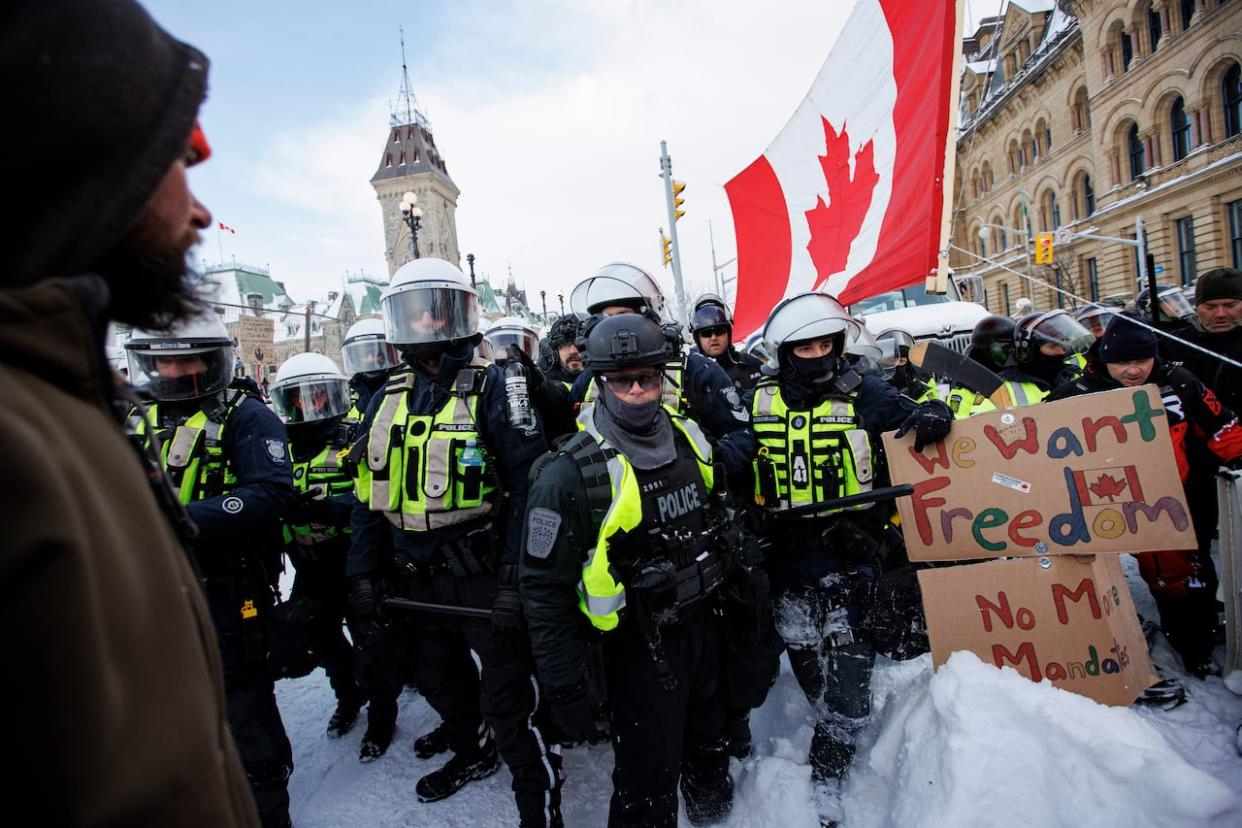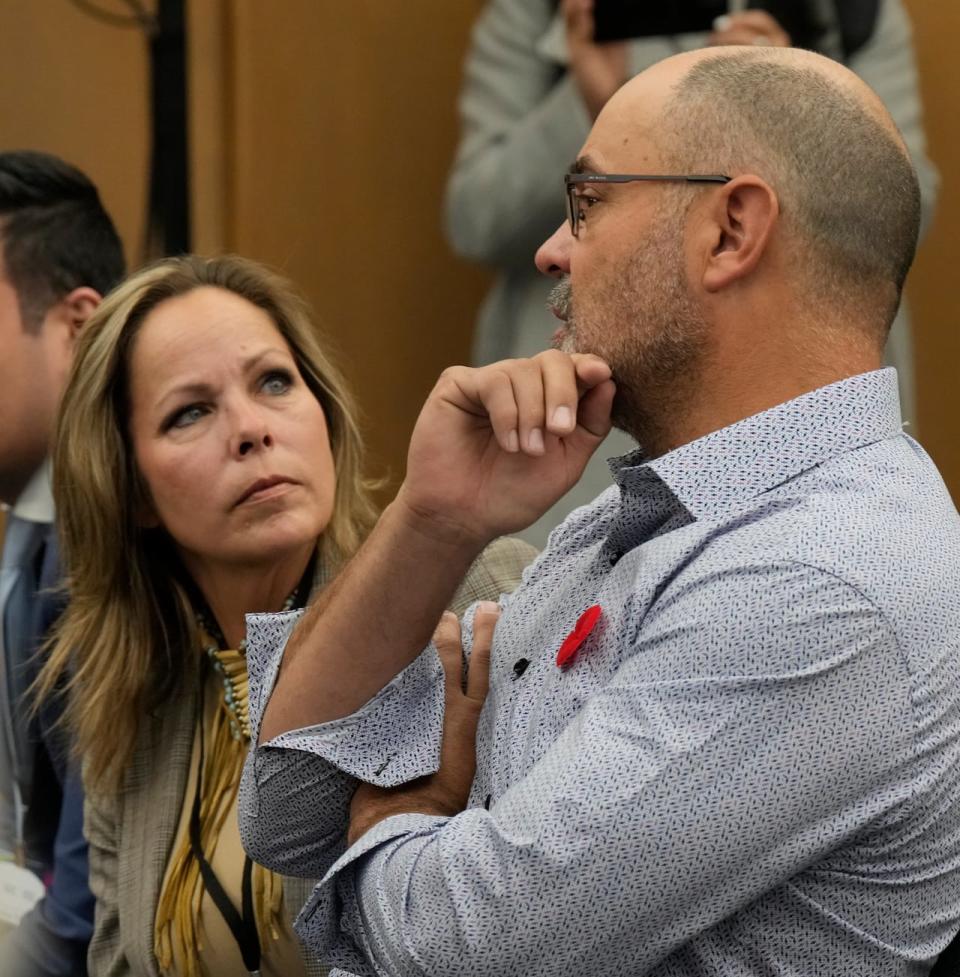Was the Freedom Convoy legal? Trial of protest leaders tackles that debate

Lawyers in the criminal trial of two leaders of what became the Freedom Convoy are at odds over the legality of the protests in Ottawa during the winter of 2022.
Tamara Lich and Chris Barber face charges of committing mischief, obstructing police, counselling others to commit mischief and intimidation for their roles in the protest. Barber is also charged with counselling others to disobey a court order.
The Crown is trying to establish the two worked closely together and that evidence against one should count against both.
They argue the two worked together to "cross the line" into committing criminal acts by organizing the protest, fundraising for it and encouraging others to join.
During its submissions, the defence argued the Crown had not proved the two had conspired to break the law and the protest was peaceful and law-abiding.
"There is not one scintilla of evidence, either direct or indirect, to suggest a common unlawful purpose," Diane Magas, Barber's lawyer, told the court Wednesday.
'We trainwrecked it'
Crown lawyers previously entered into evidence thousands of text messages retrieved from Barber's phone following his arrest on Feb. 17, 2022.
In an exchange with Lich on Jan. 30, she texts him to say, "They have a strategy to gridlock the city."
"I don't want to make those decisions on my own," she said in the text.
It isn't clear who she was referring to or how the discussion ended, but on the same day Barber texted another person: "It's already locked. We trainwrecked it."

Freedom Convoy organizers Tamara Lich, left, and Chris Barber speak as they wait for the Public Order Emergency Commission to begin in November 2022 in Ottawa. (Adrian Wyld/The Canadian Press)
Magas said her client didn't suggest anything was planned or done on purpose in those messages, and his actions didn't break the law.
It was one of several text messages retrieved from Barber's phone, which she referenced at the trial.
"There is absolutely nothing wrong with people saying they're going to protest until they get what they want," she said. "They can stay six months if they do it peacefully, lawfully."
Magas also pointed to examples of Barber working with police to remove trucks from residential streets and consulting lawyers on the legality of the protests during his time in Ottawa.
Lich and Barber's defence also argued the demonstrations in Ottawa had different factions and the two consistently told supporters to follow police directions while remaining peaceful.
No link between Lich and criminal conspiracy, defence says
Eric Granger, representing Tamara Lich, said there was "simply an absence of evidence" linking Lich to a criminal conspiracy, or a criminal unlawful design.
"If anything, the opposite is true," he said. "She tried to avoid anything nefarious happening."
The defence pointed to the federal government's Emergencies Act proclamation, used to end the protests, which allowed for "lawful advocacy, protest or dissent."
The Crown began its response as Wednesday's proceedings came to a close.
Prosecutors argued everyone's rights to protest are protected but also limited, and it is illegal to block streets and obstruct people's enjoyment of personal property.
The Crown argued a peaceful protest does not automatically mean it was legal. They say the protest was not violent, but that doesn't make it lawful or peaceful.
The Crown is expected to continue its argument Thursday, including by establishing when it began and who else may have been involved.
It is unclear when Justice Heather Perkins-McVey will rule on whether Lich and Barber are co-conspirators, but the defence has signalled it cannot call more evidence until it knows the decision.
Now on its 29th day, the trial was originally planned for just 16 days. Future court dates are now being considered for 2024.


